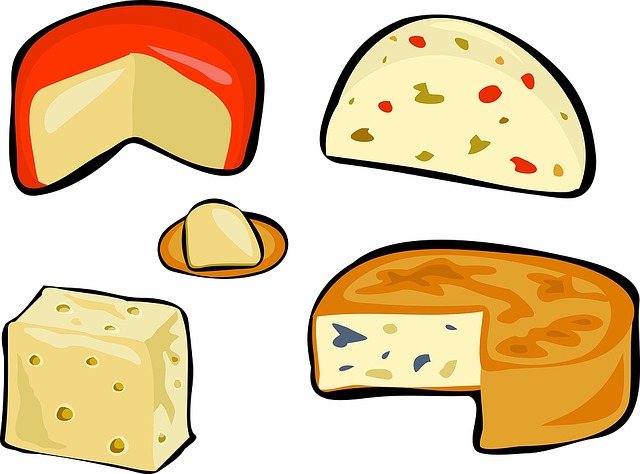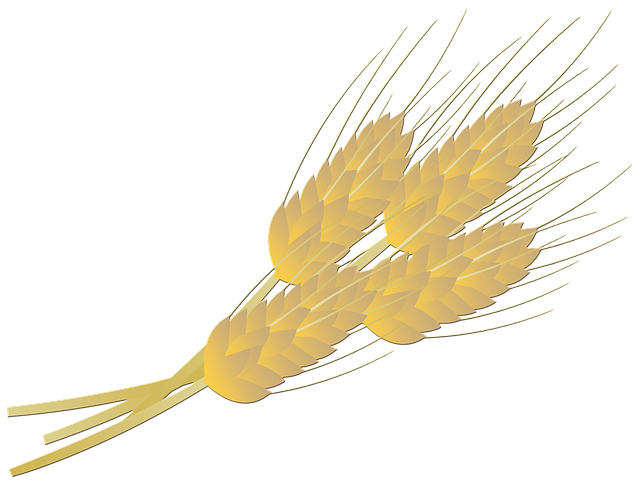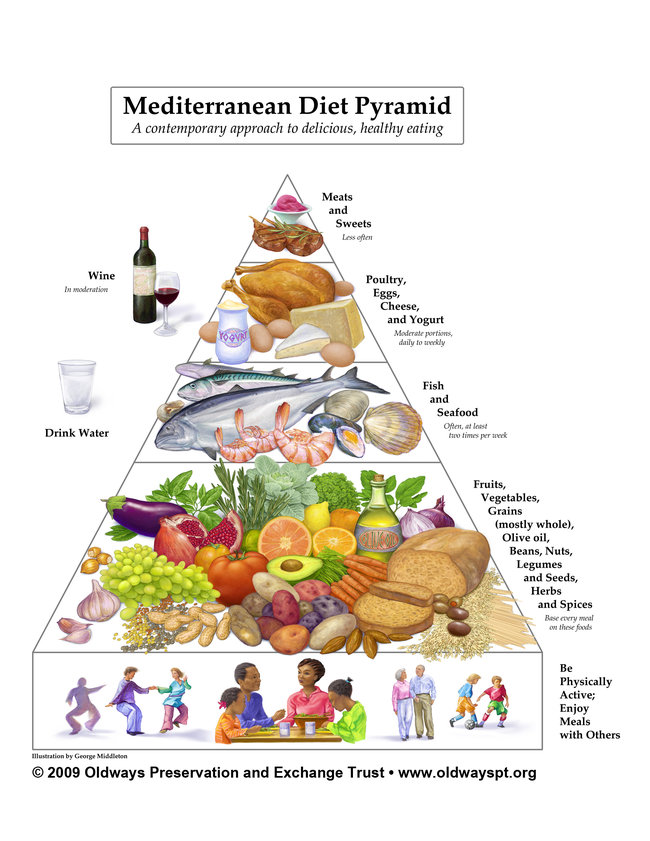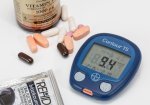Heart Disease Nutrition, Treatment and Prevention Insights
Heart disease nutrition has more than one side to it. This is to say it may be considered from a negative perspective which is from the point of view of foods that contribute to heart disease due to their harmful nature or poor nutrition.
On the other hand, we also consider heart disease nutrition in a positive sense meaning foods that contribute to the prevention and treatment of heart disease. A positive heart disease nutrition diet is what health care professionals would typically prescribe for individuals with heart disease or those seeking to pursue a heart healthy lifestyle.

As a quick but useful intro, heart disease is sometimes interchanged with cardiovascular disease. In reality though, cardiovascular disease refers to a long list of diseases of the circulatory system. These diseases are typically interrelated and the development or treatment of one often has a positive effect on the entire cardiovascular system. This is also true for heart disease nutrition. Dietary nutrition that is good or bad for the heart is generally and more often than not good or bad for other areas of the circulatory system such as your blood pressure or your kidneys.
As we consider nutrition to do with heart disease, we wish to begin by diet that is not good for the heart...
Heart Disease Nutrition: Foods to Avoid
Avoid Saturated Fatty Acids (SFA), and Don't Replace them with Refined Carbohydrates Either (h3)
For some 50 years now, major health advisory bodies have issued dietary guidelines recommending a reduction in the intake of saturated fatty acids (SFA) on the back of their effect on cardiovascular health. SFAs are a scientifically recognized risk factor for heart disease. They are found from a variety of sources as in the following range of examples;-
|
Dairy Products Processed Meats Processed Food Sources |
Meat Plant Sources |
While the list of SFAs maybe this long, it is the source that matters in regards of negative effect on heart health.
The negative effect of saturated fats from certain sources on heart health has continued to be confirmed in recent years studies such as the 2015 review published in the Cochrane Database of Systematic Reviews (2015 Jun 10;(6):CD011737). The review which derived its insights from a meta-analysis investigation involving past researches concluded that a reduction in the intake of saturated fats was beneficial in reducing the risk of cardiovascular disease.

It is has been observed that in response to the call to reduce the consumption of saturated fatty acids for the purposes of better heart disease nutrition, with good intentions people have generally tended to switch to or increased their consumption of carbohydrates. The Cochrane Database review did conclude that replacing saturated fats with carbohydrates was not useful in reducing the risk of heart disease.
Examples of carbohydrates include potatoes, grains, bread, rice, and cereal among a long list.
In 2016 the journal Progress in Cardiovascular Diseases (2016 Mar-Apr;58(5):464-72) warned that replacing saturated fats with refined carbohydrates particularly those with added sugars such as sucrose or high fructose corn syrup has a negative effect on cholesterol which contradicts heart health objectives.
But what about protein and heart health...
Did You Know that Protein Sources Matter when Considering Heart Disease Nutrition?
Not all protein is created equal. Protein sources matter in as far as their effect on heart health is concerned. This came out clearly in the 2011 report shared in the journal Current Atherosclerosis Reports (2011 Dec;13(6):493-8).
According to researchers, meat protein is linked to an increased risk of developing heart disease. Meat protein has further been linked to weight gain over a nearly 7 year period. Intake of some 125g of meat per day was associated with a 1 kg gain in weight over time.
Another 2012 report also published in the journal Current Atherosclerosis Reports (2012 Dec; 14(6): 515–524) expands on this insight highlighting that processed meat is particularly high risk for heart disease nutrition on account of its high sodium content and accompanying preservatives.
Writing in the same report, researchers note that because of this, it is probably misguided to promote deli meats such as processed chicken as being healthy alternatives on the basis of having low saturated fat.
According to the 2011 Current Atherosclerosis Reports report cited earlier, another source of protein is red meat, nuts, low-fat dairy, poultry and fish. The report stated that following a diet of reduced red meat intake and with nuts, low-fat dairy, poultry and fish led to a 13% to 30% reduced risk of coronary heart disease compared to a diet rich in meat.
In addition, diets low in carbohydrates but high in animal protein were correlated to a 23% increase in death vs diets low in carbohydrates but high in vegetable protein which had a 20% decrease in death. The difference, the researchers demonstrated, was really in the source of the protein i.e animal vs plant or vegetable protein.
Again, these study findings point to protein source as important in determining its effect on heart health.
What could be said of highly popular sodas...
Sugar-Sweetened Beverages are a Risk Factor for Heart Disease, Including in Children
No heart disease nutrition discussion may be said to be complete without a purposeful consideration of sugar-sweetened beverages (SSBs) and their effect on cardiovascular integrity.
Sugar-sweetened beverages occupy as much as 50% of added sugar in the diet of the majority of Americans. This is according to the Journal of the American College of Cardiology (2015 Oct 6; 66(14): 1590–1614). SSBs have been scientifically quite strongly linked to overweight, obesity and hypertension which in themselves are well known compelling risk factors of cardiovascular disease.
A 2014 study published in the journal JAMAL Internal Medicine (2014 Apr;174(4):516-24) pointed out that most adults in the United States are consuming more than recommended levels of added sugar to ever qualify for what is considered a healthy diet. The researchers added that they had "observed a significant relationship between added sugar consumption and increased risk for CVD mortality".
Their research findings do indeed point to the opposing effect of SSBs to good heart disease nutrition.

While the forgoing study considered heart disease nutrition in relation to adults, another 2017 study published in the journal Circulation (2017 May 9; 135(19): e1017–e1034) concluded that added sugars were causing cardiovascular problems in children.
The researchers noted that added sugars are resulting in obesity and an elevation of plasma cholesterol and triglycerides (TGs) which have been linked to the development of atherosclerosis a condition whereby fatty deposits clog arteries. Atherosclerosis complications include coronary heart disease, heart attack and heart failure among other serious cardiovascular problems.
It is in this way that sugar-sweetened beverages are harmful to heart health.
Heart Disease Nutrition: Prevention and Treatment
While the forgoing insights highlight dietary compositions that are nutritionally not good for the heart and that may actually lead to heart disease, individuals suffering from heart disease also aught to avoid a diet with such food types. In the same breath, there are specific diets recommended which are consistent with beneficial nutrition in cases of heart disease.
Dietary Fibre is Good for Heart Disease, and More
Dietary fibre is sourced from many of the grains. Examples of fibre rich grans includes wheat, rice, oats and corn. It's long been shown that dietary fibre from whole grains is an important part of good heart nutrition. According to the American Heart Association (AHA), dietary fibre improves "blood cholesterol levels, and lower risk of heart disease, stroke, obesity and type 2 diabetes".
According to a 2013 study in the journal The BMJ (2013; 347: f6879), "greater dietary fibre intake is associated with a lower risk of both cardiovascular disease and coronary heart disease". The study pointed out that both insoluble fibre and fibre sourced from cereals and vegetables had a inverse relationship with the risk of coronary heart disease as well as cardiovascular disease in general. In addition fibre found in fruits was also inversely related to risk of cardiovascular disease.
As part of heart disease nutrition planning, below is a list of foods to be considered as sources of dietary fibre...
|
Grains |
Fruits and Vegetables |
Did You Know that the Mediterranean Diet Prevents Heart Disease?
At the center of heart disease nutrition, for many health practitioners, is the so called Mediterranean diet. This diet derives its name from the approach to cooking and every day eating approaches of people living around the Mediterranean sea.
At its core, the Mediterranean diet has many of the western well known heart-healthy foods such as fish, whole grains, fruits and vegetables. However, it is the approach to preparation and variations to the diet such as adding red wine and olive oil that has drawn many to the heath healthy benefits of this diet.
In case you are wondering, the following are the key elements of the Mediterranean diet....
- Plant based foods
- Healthy fats e.g olive oil
- Herbs and spices in place of sodium
- Fish and poultry twice per week
- Reduced red meat consumption
- Red wine in moderation
- Physical activity
Image Credit: Oldways Preservation and Exchange Trust
The Mediterranean diet has been subjected to scientific inquiry to test its viability as a useful heart disease nutritional package. In 2013 the New England Journal of Medicine (2013 Apr 4;368(14):1279-90) concluded that...
among persons at high cardiovascular risk, a Mediterranean diet supplemented with extra-virgin olive oil or nuts reduced the incidence of major cardiovascular events
The study also observed that there were no adverse effects associated with the diet. This means taking the Mediterranean diet has no known side effects.
Furthermore, in 2007 a report published in the journal Clinical Interventions in Aging (2007 Mar; 2(1): 109–115), on finding evidence of the effectiveness of the Mediterranean diet in preventing heart disease and related cardiovascular problems, highly recommended that the diet be "adopted by almost everyone".
This almost blanket recommendation of the diet highlights the confidence some in the scientific community have accumulated in the effectiveness of the diet towards heart disease and other cardiovascular problems.
But that said, the Mediterranean diet is not alone...
DASH Diet, although Designed for Hypertension, is also Good for Heart Disease
The Dietary Approach to Stop Hypertension (DASH) diet is a widely referenced nutritional program that began gathering momentum in the 1990s. Its purpose was to stop high blood pressure one of the most recognized risk factors for heart disease.
Researchers agree that if hypertension is stopped, a massive drop in cardiovascular problems can be expected to follow in the general population.
Reducing blood pressure through the DASH diet has obvious benefits in individuals suffering from heart disease or those looking to prevent heart disease.
The key elements of DASH namely fruits and vegetables, low-fat dairy products, whole grains, white meat such as chicken and fish in addition to nuts is consistent with nutritional approaches scientifically known to benefit heart health.
Furthermore, the DASH diet has more calcium, potassium, magnesium, and dietary fiber. It is also less in saturated fat which we have already identified earlier as detrimental to flourishing heart health.
In overall terms, DASH has been shown to be an effective attempt at reversing the levels of sodium and cholesterol associated with a typical western diet. The West so happens to be the region with the leading prevalence of heart disease globally.
As we have shown, heart disease nutrition can be in the positive or in the negative. There are foods that must be avoided to reduce the risk of heart disease. There is also different nutritional diet to follow in cases of existing heart disease and for purposes of preventing heart disease.
[Last updated: 02 December 2017]

|
Home > Heart Disease Nutrition |
Cardio Definition > Heart Disease Nutrition |
Disclaimer
Information contained on this website is not meant to replace your doctor's advice.
(c) All Rights Reserved. 2010-2018











